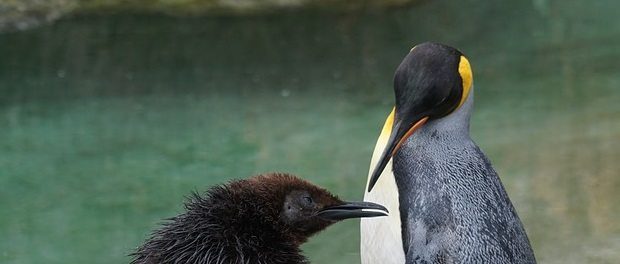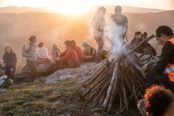[dropcap style=”font-size:100px; color:#992211;”]L[/dropcap]ittle penguins. That’s all that matters, really.
They’re penguins, and they’re little. It’s the cute factor. As Pixar can vouch, you can make penguins as sinister as Mengele, but they’ll always hit the cute button. Especially little penguins.
Apparently they invaded New Zealand.
Kinda thing you can get away with when you’re cute. And little. And penguins.
The little penguin species (popularly known as little blue penguins) found in southern New Zealand is a surprisingly recent invader from Australia, according to a new study led by University of Otago researchers.
Following the recent discovery that little penguins in the southern province of Otago belong to an Australian species, a team of researchers from New Zealand and the United States set out to determine when the Aussies first arrived.
The Marsden and Allan Wilson Centre-funded study was carried out by Dr Stefanie Grosser as part of her PhD research, and led by Professor Jon Waters from Otago’s Department of Zoology.
The researchers analysed ancient DNA from the remains of over one hundred little penguins: bones dating back to pre-human times, as well specimens from archaeological deposits and museums.
Dr Grosser says previous studies had concluded that the Australian species has been in New Zealand for hundreds of thousands of years. However, the new genetic study indicates that the Australian species arrived in New Zealand much more recently.
“Amazingly, all of the bones older than 400 years belong to the native New Zealand species,” she says.
“Our results clearly show that the Australian penguin colonised Otago very recently, between 1500 and 1900 AD, apparently following the decline of the native New Zealand little penguin, which was hunted by early human settlers and introduced predators.”
The researchers say that while the results are exciting, the finding of wildlife extinction and replacement in the aftermath of human arrival is not a completely isolated case.
“Many of New Zealand’s animal species, birds in particular, have suffered at the hands of people. The really exciting thing about these findings is that they show how quickly nature can respond to human impacts,” says Professor Waters.
The team’s findings have been published today in the international biological research journal Proceedings of the Royal Society B: Biological Sciences.
Source: Eurekalert/University of Otago

Some of the news that we find inspiring, diverting, wrong or so very right.




















